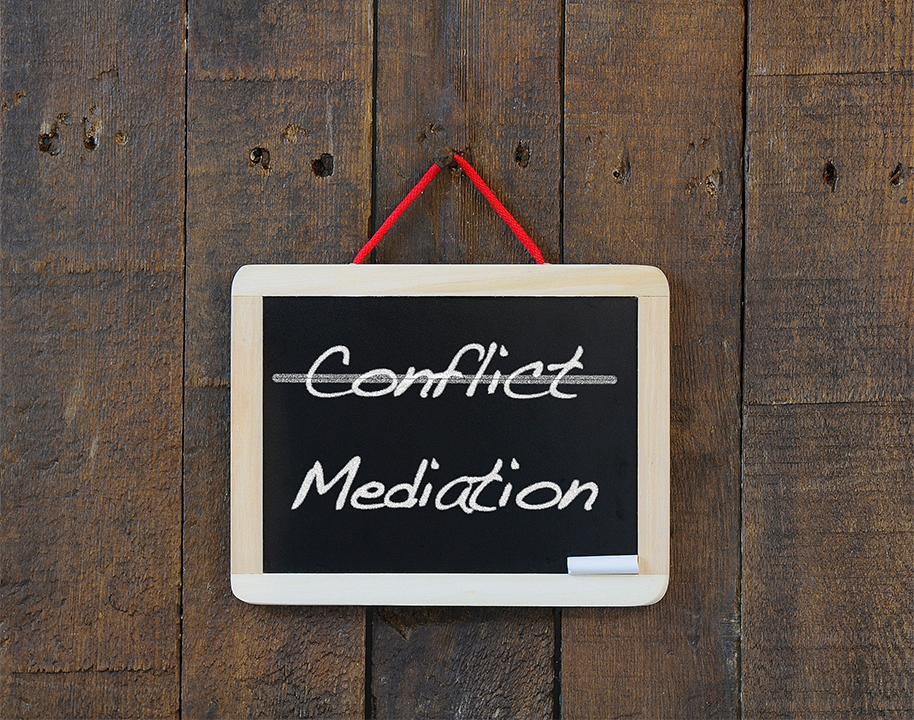Mediation is the process whereby two or more parties engaged in a dispute, decide, usually voluntarily, to utilize the services of a neutral third party to help them settle their personal. professional or legal differences to try to reach a fair and just resolution. Read on to learn mediation definitions & mediation techniques.
- Best Ideas Win Mediation: Over the last 20 years, this process has evolved as one of the more innovative mediation techniques. It emphasizes mediation as a true alternative law process,where the parties and the mediator together are fully engaged in creating and developing solutions, through a very interactive and participatory approach. The parties work still together and still make the final decision. However, the mediator with decades of experience, is allowed and encouraged to contribute his ideas and knowledge to the process. This adds a dynamic dimension and interaction, not found in standard mediation to promote real real world results. Best Ideas Win mediation is more of a goal and settlement focused process which combines the strengths and brains of everyone in the room to to create the best ideas a the basis for resolution and settlement.
- Facilitative Mediation: Using this technique the mediator directly facilitates, engages and makes easier the communication and conversation between the parties. They may ask leading questions, record facts, and ensure all parties are heard in a calm, safe, uninterrupted fashion. The mediator usually mediates in a more hands-off manner.

This mediation technique is still one of the most common and practiced widely. It has its advantages – it can reduce the impact that the mediator’s personal bias and personal weaknesses may have on the outcome, thereby keeping the mediation as fair as possible.
On the other hand, it does not allow the mediator’s experience and creative abilities to be fully utilized in arriving at the best settlement. There are times when the facilitative mediation process can be very time consuming. It can take very long to get both parties to agree where they get stuck on a certain points or just repeat the same arguments and positions over and over again. Such stale-mates can be harder to break in a truly hands- off facilitative mediation process.
- Evaluative Mediation: This mediation technique involves mediators evaluating both sides of the conflict and using their knowledge in the subject, available facts and their own creative instincts to come up with potential solution options for the parties and driving toward that solution.
The mediation process has the exact opposite pros and cons as that of the facilitative process. Evaluative mediators can often come up with outstanding creative solutions but the outcomes could depend significantly on the skill-level and experience of the mediator. Evaluative mediators often mention how they could have arrived at a better solution to a case in the past years after it was closed and settled. This style is often combined with the facilitative style to ensure a creative but impartial mediation process.
- Transformative: This style involves empowering both parties to see beyond the obvious and enable them to create better solutions a tries to transform the parties involved into better people first and focuses on resolution sometimes as a secondary item This is a relatively newer techniques of mediation and may be practiced as a stand alone style or in conjunction with other mediation styles. Many mediators believe that the effective practice of mediation itself transforms all of the parties in the process, including the mediator.
In addition to these, there are other styles that are less formal and less documented in the mediation literature.
- Outside-In mediation: This process involves discussing the dispute from the point of view of a third party, stepping away from the dispute and looking “outside-in”. It is often difficult for parties to engage in such a process but works very well in certain situations, especially in family disputes.
- Orchestrated mediation: This type of mediation involves planning the mediation process ahead of time. This works best when it is known that an immediate settlement either cannot be achieved or is not the intention due to extrinsic factors. This type of mediation is best used in complex mediation such as those between nations, or large organizations (such as the United Nations).
There are many other techniques, styles and types of mediation processes. An exhaustive list is less important than understanding the essence of these major types and recognizing that each mediator’s style is often different – sometimes of a blend of the above types, combined with their own personal influences, life experiences, training and perspectives.

